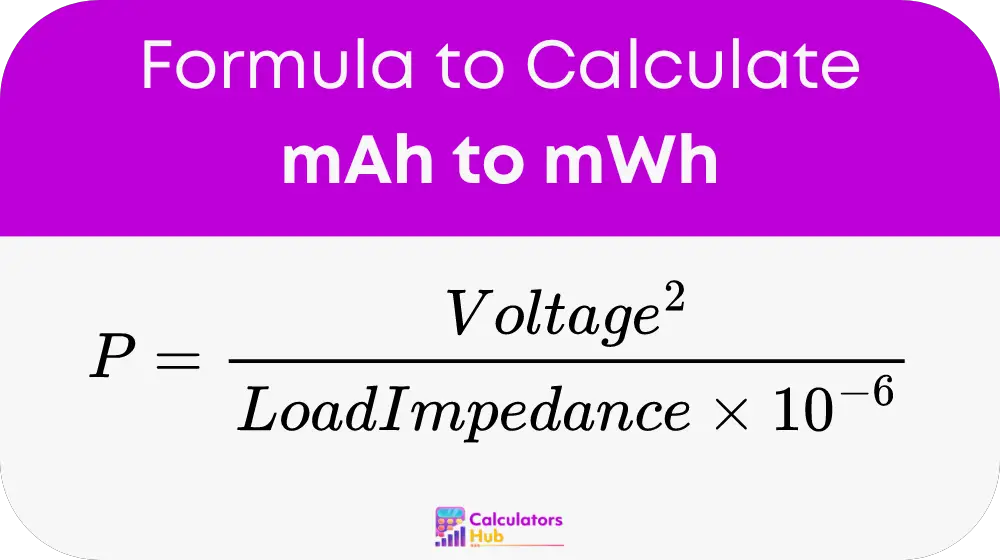The mAh to mWh Calculator is a valuable tool used in various fields, particularly in electrical and RF engineering. It serves the purpose of converting electrical charge capacity (measured in milliampere-hours, mAh) to energy capacity (measured in milliwatt-hours, mWh). This conversion is essential for determining the amount of energy a battery can store and deliver over time. By inputting the voltage and load impedance values into the calculator, users can quickly obtain the power output in milliwatt-hours.
Formula of mAh to mWh Calculator
The formula used in the mAh to mWh Calculator is:

This formula calculates power (in megawatts) based on voltage and load impedance. It accounts for the relationship between voltage and impedance in determining the power output of a system. Understanding this formula is crucial for accurately estimating power requirements and optimizing energy usage in various applications.
General Terms Table
To aid users in understanding and utilizing the mAh to mWh Calculator more effectively, here is a table of general terms commonly associated with battery capacity and energy conversion:
| Term | Definition |
|---|---|
| mAh | Milliampere-hour, a unit of electrical charge representing the capacity of a battery to store energy. |
| mWh | Milliwatt-hour, a unit of energy equivalent to one milliwatt (1/1000 of a watt) of power expended for one hour. |
| Voltage (V) | The electrical potential difference between two points, measured in volts. |
| Load Impedance (Z) | The opposition to the flow of alternating current in a circuit, measured in ohms. |
Example of mAh to mWh Calculator
Let's consider an example to illustrate how the mAh to mWh Calculator works:
Suppose we have a battery with a voltage of 3.7 volts and a load impedance of 50 ohms. Using the formula mentioned above:
Power (P) = (3.7^2) / (50 * 10^-6)
≈ 0.684 mWh
So, the power output of the battery is approximately 0.684 milliwatt-hours.
Most Common FAQs
A: Converting mAh to mWh allows us to understand the energy capacity of a battery, which is crucial for determining its performance and suitability for specific applications.
A: Yes, the calculator can be use for various types of batteries as long as you know the voltage and load impedance values.
A: The calculation is highly accurate and reliable, provided that the input values are correct and the formula is applied correctly.